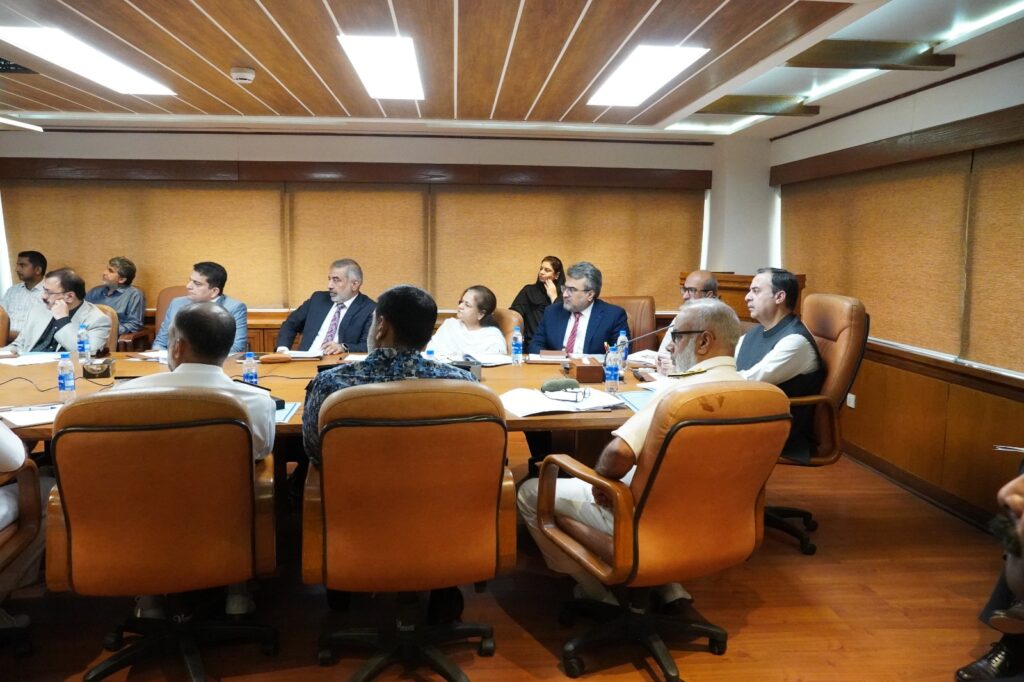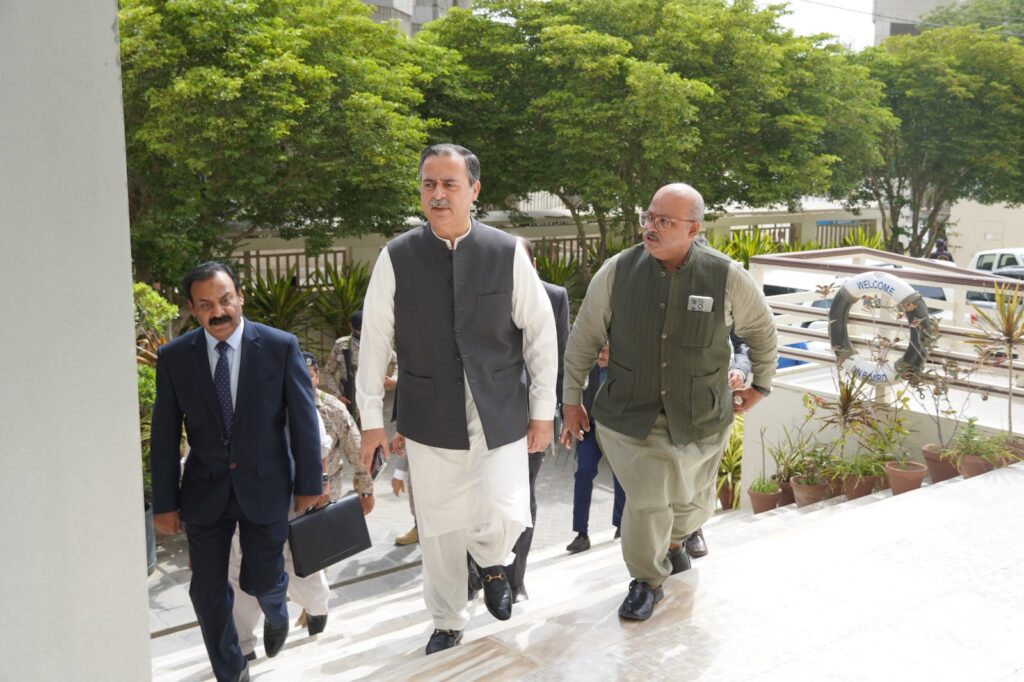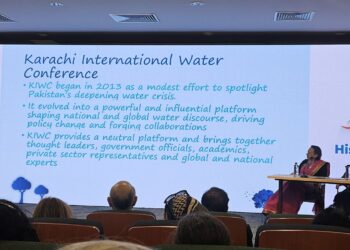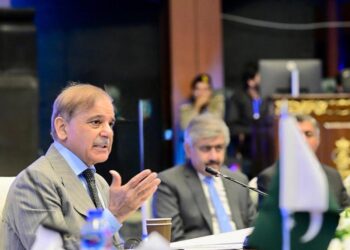To tackle long-term challenges, the Minister
emphasized the need to accelerate the Sewerage
Treatment Project and establish new facilities
Staff Reporter

Karachi: Federal Minister for Maritime Affairs, Muhammad Junaid Anwar Chaudhry, has raised alarm over the growing threat of marine pollution to Pakistan’s blue economy, highlighting its damaging effects on biodiversity, fisheries, tourism, and public health.
Marine Pollution Control Board Convenes After 15 Years
The Minister made these remarks while chairing a long-overdue meeting of the Marine Pollution Control Board on Thursday in Karachi. This was the board’s fifth session and the first in 15 years, attended by representatives of all relevant ministries, departments, and organizations.
He expressed concern over the prolonged delay in convening such meetings and ordered regular sessions moving forward to address marine environmental issues proactively.
Two Committees Formed for Wastewater Treatment Projects
To tackle pollution sources, the Minister announced the formation of two expert committees. These will focus on the Sewage Treatment Plant-III (STP-III) and the Combined Effluent Treatment Plant (CETP)—key projects designed to manage sewage and industrial wastewater. Both committees are tasked with submitting actionable reports within 20 days.

Karachi’s Wastewater Crisis Exposed
Officials briefed the Minister on Karachi’s critical pollution statistics. The city discharges over 472 million gallons of sewage daily, including nearly 100 million gallons of industrial waste. This waste flows through stormwater drains into the Lyari and Malir rivers before reaching the Arabian Sea, causing severe marine degradation.
Solid Waste and Coastal Dumping Aggravate the Problem
Solid waste—comprising biodegradable, non-biodegradable, and recyclable materials—is frequently dumped along waterways and coastlines. This exacerbates marine pollution and harms local ecosystems. Proposed countermeasures include installing nets on nullahs, fencing rivers, and removing floating trash from the harbor.
Call for Public Awareness and Legal Enforcement
Minister Chaudhry stressed the urgent need for a national public awareness campaign and the strict enforcement of environmental laws. He urged for harsher penalties under the Merchant Shipping Ordinance and the Pakistan Environmental Protection Act for ships and industries that pollute marine waters.

Empowering SEPA for Effective Oversight
The Minister advocated for expanding the authority of the Sindh Environmental Protection Agency (SEPA) to better monitor and regulate environmental compliance across coastal and industrial zones.
Marine Pollution’s Far-Reaching Impact
Marine pollution, the Minister warned, is not only destroying biodiversity but also harming the economy, threatening food safety through contaminated seafood, damaging harbor infrastructure, and accelerating coastal erosion. He noted that land-based sources account for nearly 90% of the pollution, which can be significantly reduced through targeted interventions.
Sea-Based Pollution Also Under Scrutiny
The meeting also addressed pollution from sea-based sources, including ballast water discharge, ship waste, offshore drilling, fishing operations, and shipbreaking. These account for approximately 10% of marine pollution. The Minister called on Karachi Port Trust (KPT) and other maritime authorities to strictly enforce regulations.

Plans for Expansion and New Treatment Facilities
To tackle long-term challenges, the Minister emphasized the need to accelerate the Sewerage Treatment Project and establish new facilities, especially in Manora, Baba Bhit, and near Kalri and Phitti nullahs. These would help prevent untreated sewage from entering the sea and improve marine health across strategic coastal zones.























